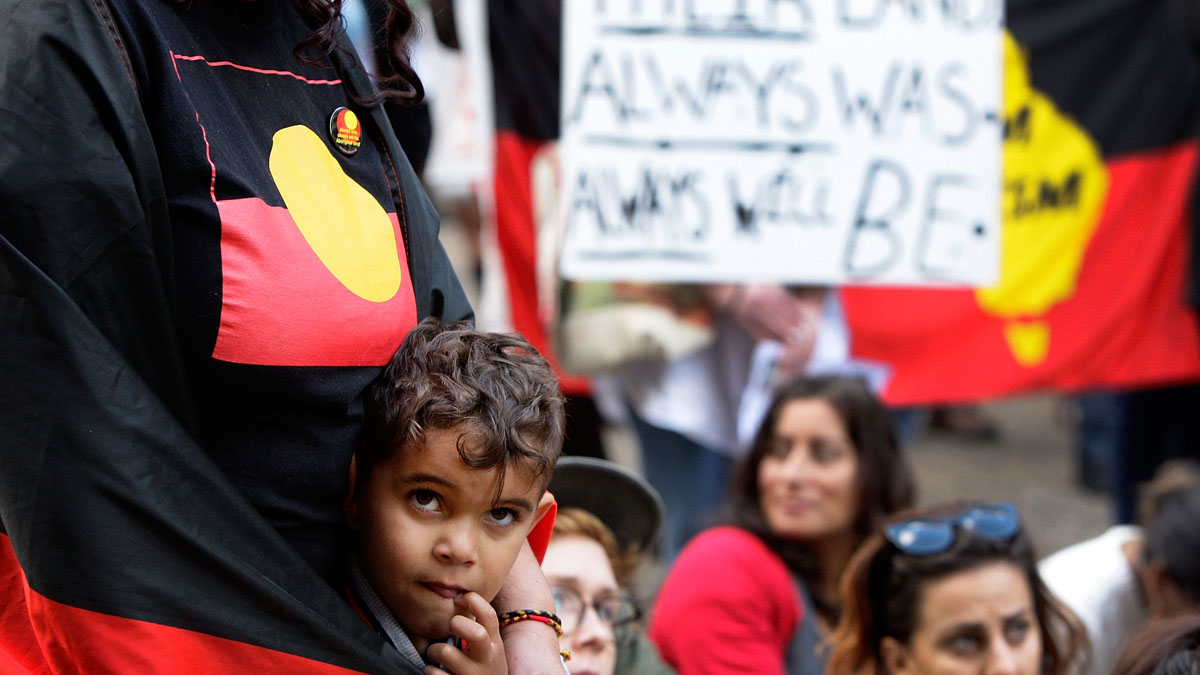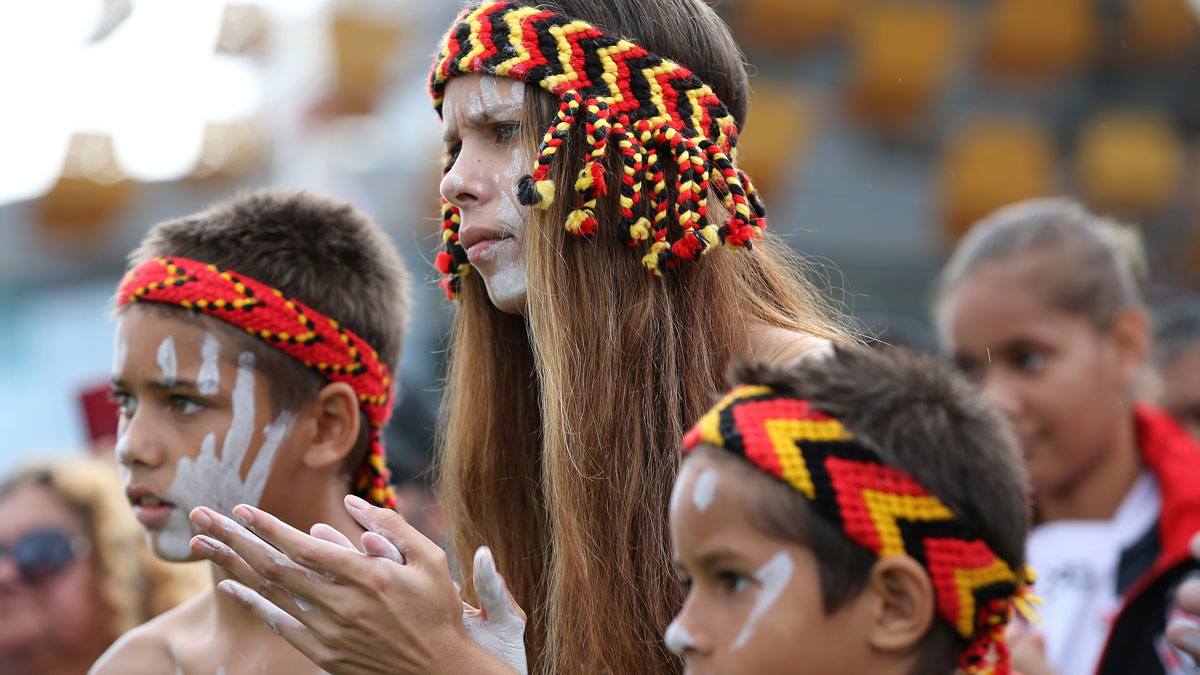Could miners and indigenous peoples relations be turning the corner?

Picture: Getty Images
Relations between Australia’s indigenous peoples and miners have been contentious to say the least, but Pantera’s Matt Hansen – a proud Noongar man – believes that while there is much work left to do, there is change in the air.
The roots for this dissent stem from the centuries of mistreatment faced by Australian Aboriginals that includes repression of their culture, dispossession of their land and mass killings.
And while recognition for their plight has improved in recent times, the differences in state laws still have a major impact on indigenous peoples, as was so clearly highlighted by Rio Tinto’s destruction of 46,000-year-old rock caves containing irreplaceable cultural artefacts.
That this was done legally under Western Australia’s current Aboriginal heritage laws has drawn international criticism even as the McGowan government seeks to update its legislation with the Aboriginal Cultural Heritage Bill 2021.
However, as Stockhead’s Josh Chiat noted in our November 2021 article, this bill has drawn criticism from traditional owner groups who said it doesn’t do enough to protect their heritage.
Rio Tinto didn’t escape free from the debacle, with three senior executives including then CEO Jean Sebastien Jacques resigning in its wake and the company forced to cut millions of tonnes of iron ore production after reviewing its mine plans.
Native Title negotiations can also prove to be tough for companies with prolonged talks preventing them from catching commodity cycles at the right time on occasion.
But it doesn’t have to be this way.
Changing times
Pantera Minerals (ASX:PFE) chief executive officer Matt Hansen is intimately familiar with the issues facing both parties thanks to his Aboriginal heritage – as one of Western Australia’s Noongar people – and his extensive experience as a lawyer with a focus on Native Title, indigenous affairs and land access matters.
Speaking to Stockhead, Hansen is the first to admit that his comparatively fortunate background and family experience cannot compare with the often difficult circumstances faced by other indigenous people.
“There are so many issues affecting indigenous people, loss of land, loss of culture, health issues, the suicide level is phenomenal, you have got kids in the Kimberley who are eight committing suicide because they don’t see a way out,” he noted.
“As an eight-year-old, you shouldn’t even know that that’s an option. We are a long way from fixing that, change is needed.”
Hansen doesn’t believe that government will lead this change. Rather he thinks that change is going to be driven by companies operating on indigenous land and the general population because the generation coming through now are more open to ideas and crave more and want to hear more.
“Australians have a unique opportunity to reconnect, understand the phenomenal culture the indigenous people have and still have in this country, bar everything that has gone to repress and dispossess them,” he explained.
“We have a lot to do to learn and embrace these people who have survived and flourished for 40,000 years living in some of the harshest environments in the world.”
He ranked his participation in heritage surveys, which are taken to identify areas of importance to local traditional owner groups ahead of securing land access for petroleum and mining exploration, as some of his best experiences while working as a lawyer in this sector.
“Heritage surveys are a unique opportunity to go out there and hear about a traditional owner group. Some groups won’t open up, some will and some take a couple of visits and they are not very trusting, which is fair enough,” he added.
“When I worked with New Standard Energy about 13 years ago, we were drilling onshore oil and gas wells and had to do a 10-day heritage survey and it took us five days to drive to the desert.
“And 3.5 of those days there was no road, this was about 13 years ago, and one of the indigenous people in our group, he walked out of the desert in the 1960s. That is just one generation ago so it wasn’t that long ago.
“They also tell stories of a woman who never left the sand swell, that was her life. It is just hard to comprehend.”
Improving relations
So just how can relations between indigenous peoples and miners be improved?
Hansen, whose experiences with both miners and traditional owner groups make him uniquely qualified to understand where both companies came from, believes that recognising that indigenous landowners are stakeholders who are every bit as important as shareholders that will make the biggest impact.
“I think it needs to be acknowledgement from mining companies that we are operating on traditional people’s lands, someone’s lands, and what we are doing to the land has great impact on them personally, physically and emotionally. We need to respect that,” he told Stockhead.
“A lot of non-indigenous people don’t appreciate the connection to land an indigenous person has. They have a deep-seated feeling that they need to protect the land.”
Hansen explained that while a non-indigenous person might love where they live, they ultimately had a price that they would sell for.
“But indigenous people can’t put a cost to their land. There isn’t a value they could sell it for. We need to understand that it is actually their country and the resources are technically owned by the indigenous people and not the states,” he added.
“I think we are seeing better deals come along now, but in the end they have to be considered the true stakeholder.
“The miners build a great big mine and they do the rehab but it still knocks out a big swathe of land that indigenous groups go to hunt and perform their culture. Mining companies are more aware now and consideration is getting better.”
Given this state of affairs, it is unsurprising that some groups do not want to be involved because mining will damage their country but if they do decide to be involved, Hansen believes there are opportunities for them to be leveraged into mining operations and exploration if they so desire to.
“I think that also relies on the mining companies to throw in ideas, the traditional owners may not have been involved in exploration before and might not understand what opportunities are available to them, more than just employment,” Hansen noted.
“There are so many areas in mining and exploration that traditional owners could get involved in, from being involved in drilling or owning drilling companies to providing vehicles that everyone needs.”
He added that this recognition and understanding was important as it could take a long time to build a working relationship with indigenous groups only to have that destroyed in just 30 seconds.
And while recognition will play the biggest role in improving relations, having more indigenous professionals such as himself or former politician Ben Wyatt – who sits as a non-executive director of both Woodside and Rio – will certainly be welcome as well.
Hansen pointed out that just as boards needed to have a broad range of skill sets like finance, geology, mining engineering, etc in order to drive the company’s visions, they also needed to have some level of insight or understanding into indigenous culture.
This is particularly true given that almost every company in Australia is operating on indigenous land.
Education provides choices
Improving relations between indigenous peoples and miners will go a long way towards addressing the imbalance that traditional owners face, but there is one issue in particular that Hansen feels strongly about – education.
Hansen himself was a late starter, spending a couple of years working for Coles after an initial (and brief foray into university) before returning to study, first in Arts before transferring over to Law.

“I was fortunate to be picked up by a law firm in my fourth year which had acknowledged that it wanted more indigenous lawyers,” he noted.
From there he moved on to a role with the South West Aboriginal Land and Sea Council in Western Australia to do Native Title work and improve his understanding of Noongar culture.
This led to an inhouse role with New Standard Energy before spending several years as a sole practitioner with mining clients ranging in size from Newmont and Northern Star down to small explorers.
The last role also led to his current position as the CEO of Pantera after he was recruited by chairman Barnaby Egerton-Warburton.
Hansen’s experiences underscore his opinion that education is important not because getting a degree is important but because of its ability to offer choices.
He sits on a board of non-profit MADALAH, which enables about 390 indigenous kids in Western Australia with scholarships to attend boarding private schools in Perth and universities.
“I really enjoy what I do at MADALAH. Our scholarship recipients are now getting a really good education and are in a position now to drive or choose their pathway, he added.
“And that might be going to uni and becoming a doctor, lawyer, accountant or engineer. It might be going to be a tradie or into the arts.”
He also admires the kids for their strength as they are away from their families for much of the year.
“Yes, they meet more kids and they get different networks, but they are still away from their families. I can’t understand what it is like to be a year 7 kid, 12-13 years old and you’ve got to go to boarding school in Perth. I wouldn’t have been able to do it,” Hansen admitted.
His sole regret is that MADALAH doesn’t have enough funding to send more kids to school.
“We could have another 150-200 kids, but we don’t have enough funding. It is expensive to send a child to a private school.”
Wrapping up, Hansen reiterated that traditional owners needed to be treated as key stakeholders and involved in mining projects but allowed that just as indigenous groups had different languages, cultures and expectations, his opinions were also his own and that others might disagree.
“They might say we don’t want a mining company coming in and I accept that,” he concluded.
At Stockhead we tell it like it is. While Pantera Minerals is a Stockhead advertiser, it did not sponsor this article.
UNLOCK INSIGHTS
Discover the untold stories of emerging ASX stocks.
Daily news and expert analysis, it's free to subscribe.
By proceeding, you confirm you understand that we handle personal information in accordance with our Privacy Policy.








